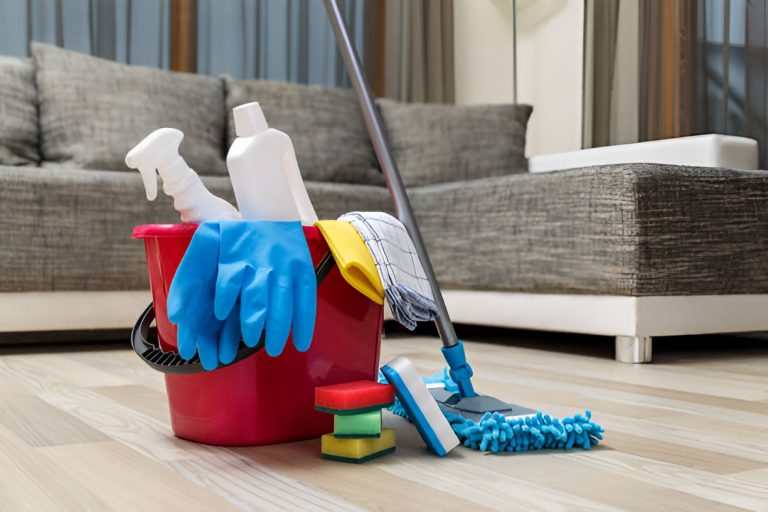

Have you recently purchased a home in a rural area? Congratulations! Living in the country is at the core of many people’s dreams, especially due to the possibility of living off-grid. You get an expanse of gardens, wildlife, and clean air.
However, you must ensure your new home is a safe and comfortable retreat to enjoy the thrill of living in the countryside. This article unveils a comprehensive checklist for ideal rural area homes, covering general construction, plumbing, sprinklers, the garage, landscaping, and more.
Home’s Foundation

Ensuring the house’s foundation is in good shape is one of the most crucial considerations when purchasing or even renting rural area homes. Examine the foundation for bulging or leaning. The house walls and foundation should be level. Additionally, keep an eye out for cracking concrete since these could be degradation indicators.
Next, inspect your foundation for any areas where water may collect, especially following a downpour. Note wetness or erosion on your home’s exterior. Pooling water may signify cracked pipes or loose soil that could damage your foundation. Next, if your type of foundation permits, enter your underhome area and inspect the interior of the walls and, if possible, the slab. Look for stair steps and horizontal cracks extending around corners on the foundation walls when inspecting your crawl space or basement.
If you see a few warning indications of potential foundation issues, we recommend doing your foundation inspection at least twice a year and contacting local concrete contractors. A professional foundation inspection seeks to ascertain the structural soundness of your home’s foundation. Angi estimates hiring a structural engineer for a foundation inspection and report will cost between $450 and $1,200.
Sprinklers
Maintaining a lush and vibrant garden is a common aspiration in many rural area homes. A lush lawn requires adequate water treatment in addition to routine lawn maintenance. This is where a lawn sprinkler system comes into play. According to Angi, installing sprinkler systems cost about $2,500 to $3,500. However, the long-term benefits of installing a lawn sprinkler might outweigh the initial cost, making it a wise investment.
The development of irrigation technology has allowed manufacturers of lawn sprinklers to produce controllers. Certain controllers can measure the quantity of rainfall and switch off the system automatically. This will help you save water and lower your water bill.
A sprinkler distributes the right amount of water needed to keep your lawn in pristine condition. Additionally, you won’t have to water your lawn by hand after installing a sprinkler system. All you have to do is turn on the sprinkler and make a few screw adjustments. Furthermore, with the assistance of experts in sprinkler system repairs, routine inspections are simple. Install a lawn sprinkler system in your rural home to keep your plants healthy and the entire lawn looking great.
Garage

While remodeling a garage isn’t always simple, it’s often a top priority for rural area homes. You might enjoy spending time in the space if you add storage and redo the floor. Your garage is a room full of unrealized potential, and remodeling doesn’t have to be expensive. You can spruce it up on a budget, starting with the floor.
Most garages need concrete flooring to support the car’s weight. These floors get worn out and unsightly over time from cracking. Consider installing vinyl plank flooring in the area if you want to change its appearance and do away with the garage vibe. If you install it yourself, it’ll cost approximately $500 for about 400 square feet, according to Angi.
Furthermore, antiquated, rusty, filthy, and ancient garage doors might ruin the overall aesthetics of your house. That being said, you can significantly enhance the visual attractiveness of your house by replacing or modernizing the garage door. If the door is a single piece and very old, rusted, or damaged, remove the outdated frame before installing the new door. When removing a garage door, there is usually a chance that the entryway opening will be damaged. Therefore, you should examine the building carefully, fix any damage, and replaster the affected parts.
Landscaping
A significant amount of the nation’s natural resources are found in the rural areas, which make up about 97% of the country’s landmass, according to the United States Census Bureau. One in five Americans resides in a rural location. One endearing feature is that large rural areas can be landscaped to blend in with the natural environment while enhancing open spaces that were previously sparse or nonexistent in terms of usability and functionality.
Removing extraneous trees, shrubs, bark, and grass is critical to maintaining a tidy, thriving landscape. You have two options for getting help with your landscape’s initial improvements: hiring a tree service or hiring a professional landscaper. Combine your plants by including fruit bushes, veggies, and herbs with your flowers. There are numerous ways that garden furniture can accentuate the beauty of your landscape.
Consider building fences to adorn the space; they offer rural area homes privacy and shield plants from animals. Enhance your landscape’s aesthetic appeal and practicality by incorporating existing materials to create a more rustic feel. Sinks, closets, cabinets, and bathtubs can be attractive planting spots. Other items that can be used similarly include old pots, toolboxes, buckets, and ceramic bowls. They often create a lovely garden accent that will make passersby smile.
Emergencies

Living in a rural area can put you at risk of various weather patterns and natural calamities. As you begin your preparedness plan, research the types of disasters that frequently strike your region. Get a generator large enough to run the water heater, well pump, television, and lights simultaneously. If you are willing to invest, buy a propane-powered whole-house generator that can start up automatically during a power outage.
Water damage is usually the largest threat to rural area homes. Ensure your home is ready for the changing seasons by checking the roof regularly, hiring a professional to inspect and clean the stove pipes and flues, and ensuring the pipes are wrapped or well-insulated for the winter. Consider installing hurricane windows to safeguard your family from severe weather like hurricanes and storms. The extra security these windows provide shields your home from bad weather.
Remember to draft a communication strategy. When tragedy hits, your family might not be together. Talk to your partner about emergency readiness, such as meeting places, exit strategies, and how to keep in touch in an emergency.
It is just as crucial to practice and rehearse your plan as it is to create. This is especially important if you live where wildfires occur frequently. There may not always be many ways to escape the fire’s path, so perfecting the exit strategy is crucial.
Roof
A roof serves as a functional system for rural area homes. It shields your house from the weather elements. It’s, therefore, imperative to take care of your roof. You can keep your roof in good condition by conducting routine roof inspections.
Start by examining your roof from the ground up, looking for signs of damage such as rust and perforations. While it may seem appealing to climb up the roof, leaving these taxing tasks to professional roofers is recommended. Walking on angled roofs or weak sections could be dangerous, and any damage you cause could void the roof’s warranty.
Determine which areas exhibit aging, sagging, or wear and tear. Examine the roof overhangs and the gutters. If you find sections that require attention, get a qualified roofing inspector to do thorough repairs and replacement. Expect to pay around $9,117 for roof replacement, according to Bankrate.
Plumbing

Getting your plumbing inspected is a low-cost way to put your mind at ease, or at the very least, to find a problem that needs to be fixed before it worsens and becomes more expensive. Your property could sustain significant water damage due to a plumbing problem, costing you thousands of dollars in repairs. Angi estimates that the average cost of a plumbing examination is $575, but since a plumber may identify problems before they become costly catastrophes, the inspection makes up for its expense.
While the number of plumbers in rural areas might be relatively low, it’s imperative that you only settle for the best. The plumber starts by turning on the water fixtures to look for leaks in the plumbing system. They will inspect several fittings, including toilets, showerheads, outdoor water spigots, bathtub and shower faucets, and sink faucets. They will also inspect your caulking to ensure no problems that could eventually result in water damage.
It is common for frozen pipes to burst, which is one of the most common plumbing problems. A seasoned plumber unblocks the pipes and replaces lead pipes in some older rural area homes that are unsafe. An ideal plumber should look within drains and pipes for possible blockages or growing silt accumulation. By scheduling a routine inspection, you can ensure your plumbing system is well-maintained for many years.
General Build
Ensuring your rural area homes have solid structural integrity is crucial. A poor structure can cause serious issues, including wall fractures, subsidence, the separation of structural components, and, in the worst situations, the partial or complete collapse of the building. Furthermore, a poorly designed building may jeopardize the security of the occupants.
Take a walkthrough of your house and note anything that doesn’t seem quite right to determine its overall well-being. Do the ceiling or walls have any cracks in them? Is there water damage, or are there any areas where the flooring is uneven?
Doors and windows that cannot shut completely could indicate structural problems. Engage a residential general contractor to inspect your home if you discover something abnormal. According to Houzz, expect to pay them $50 to $100 per hour. They may supervise a range of projects, guaranteeing that your rural house fits your changing demands and stays in top shape.
Electricity and Power
Many rural area homes rely on electricity to run refrigerators, lights, cooking, and other essential equipment. However, a badly maintained and incorrectly installed electric system can be extremely dangerous. It can result in a fire that destroys your family and valuable possessions. As a result, you should regularly check your home’s wiring for warning indications of a serious issue and hire an expert to address it.
Ensure no tree branches are rubbing against the overhead wires supplying power to your property and cover plates are fitted on your house’s outlets, switches, and junction boxes. Some more typical locations for missing cover plates are garage ceilings, behind refrigerators, inside kitchen cabinets, and unfinished basement spaces. Uncapped or incorrectly terminated cables present a serious risk of electrocution, and you should fix them immediately.
Consider improving the energy efficiency of your house. Local solar power companies can help you switch to a more affordable and sustainable energy source by guiding you through the process. According to the US Department of Energy, nearly 4 million US homes have solar panels, demonstrating the potential of solar power to produce clean, dependable electricity. Solar panels can still operate even on cloudy days, albeit less effectively than in bright sunlight.
Air Conditioning and Heat
Regardless of the condition of your AC, you should schedule an AC tune-up before you move to your new rural home. You don’t want to endure unbearable heat while your air conditioner is broken, do you? If you’re unsure how well your device operates, check it out and rule out possible problems. How do you do the checks?
Switch on your air conditioner and check the air passage via the vents. Check whether the air is blowing steadily and powerfully by placing your palm close to the vents. It ought to feel solid and steady. Check if your thermostat works correctly by adjusting it to various temperatures and seeing if the air conditioning system reacts appropriately.
Your air conditioning system won’t operate as effectively or efficiently as one with regular maintenance. Seek expert advice if you suspect the unit isn’t working optimally. A professional HVAC contractor can accurately detect issues and perform required maintenance or repairs, ensuring your air conditioner is ready to withstand summer heat.
In conclusion, moving to a new rural residence is a thrilling adventure but entails a unique set of duties. You may construct a sanctuary that not only captures the peace of rural living but also endures over time by taking care of the important details outlined in this checklist and working with qualified local professionals.



